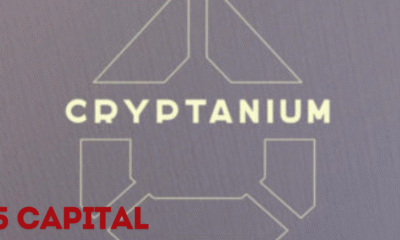Introduction:
In the dynamic realm of cryptocurrencies, the term “tokens” has become synonymous with a wide range of digital assets built on blockchain technology. These tokens serve various purposes within decentralized ecosystems, offering functionalities such as utility, governance, and even representing ownership. In this article, we will explore some of the best tokens that have garnered attention and recognition in the digital era, examining their use cases, unique features, and contributions to the evolving landscape of decentralized finance.
Understanding Tokens:
Tokens, in the context of cryptocurrencies, are units of value that exist on a blockchain. They can represent a variety of assets, including but not limited to digital currencies, access rights, or ownership in a particular project or platform. Tokens are often created and managed through smart contracts, self-executing contracts with the terms of the agreement written directly into code.
Prominent Tokens in the Cryptocurrency Space:
- Bitcoin (BTC):
- While often referred to as a cryptocurrency, Bitcoin is, in fact, a digital asset or token on the Bitcoin blockchain. It remains the pioneer and the most widely recognized cryptocurrency, serving primarily as a store of value and a medium of exchange.
- Ethereum (ETH):
- Ethereum, a decentralized platform for creating and executing smart contracts, has its native token called Ether (ETH). Ether is essential for transactions and computational services on the Ethereum network and is a crucial component in the broader decentralized finance (DeFi) ecosystem.
- Binance Coin (BNB):
- Binance Coin, the native token of the Binance cryptocurrency exchange, has evolved beyond its original purpose of reducing trading fees. BNB is now widely used in various applications, including participating in token sales on the Binance Launchpad and powering decentralized finance projects on the Binance Smart Chain.
- Uniswap (UNI):
- Uniswap, a decentralized exchange (DEX) built on the Ethereum blockchain, has its governance token called UNI. UNI holders have the power to influence the protocol’s development, including proposing and voting on changes to the platform.
- Chainlink (LINK):
- Chainlink is a decentralized oracle network that connects smart contracts with real-world data. LINK is the native token of the Chainlink network and is used to pay node operators for retrieving and transmitting data to smart contracts.
- Polkadot (DOT):
- Polkadot is a multi-chain platform that enables different blockchains to interoperate. DOT is the native token of the Polkadot network, serving as a utility token for governance, staking, and bonding.
- Cardano (ADA):
- Cardano is a blockchain platform known for its focus on scalability, sustainability, and interoperability. ADA is the native token of the Cardano network and is used for transactions, staking, and participating in the platform’s governance.
- Aave (AAVE):
- Aave is a decentralized lending platform on Ethereum, and AAVE is its governance and utility token. AAVE holders have voting power in the Aave Improvement Proposals (AIPs) and can stake their tokens to earn a share of the protocol’s fees.
Considerations in Evaluating Tokens:
- Use Case:
- Understanding the purpose and utility of a token is crucial. Some tokens function as digital currencies, while others may represent ownership in a project or provide governance rights.
- Technology and Security:
- The underlying technology and security features of the blockchain on which the token operates are critical considerations. Robust security measures and scalability contribute to the reliability of the token.
- Community and Governance:
- The strength of the community supporting a token and the governance mechanisms in place can impact its long-term success. Active community engagement and transparent governance structures are positive indicators.
- Market Performance:
- Monitoring the market performance of a token, including factors such as liquidity, trading volume, and historical price movements, can provide insights into its popularity and acceptance.
Conclusion:
The world of cryptocurrency tokens is vast and continually evolving. As blockchain technology matures, tokens play an increasingly integral role in decentralized ecosystems. Whether used for transactional purposes, governance, or participation in decentralized applications, the best tokens are those that align with the values of their respective communities and contribute to the broader goals of a decentralized and inclusive financial landscape. As with any investment, thorough research and consideration of the unique features of each token are essential for informed decision-making in the dynamic world of cryptocurrencies.

 Press Release7 days ago
Press Release7 days ago
 Business4 days ago
Business4 days ago
 Government7 days ago
Government7 days ago
 Healthcare5 days ago
Healthcare5 days ago
 Immigration4 days ago
Immigration4 days ago
 Business4 days ago
Business4 days ago
 Government4 days ago
Government4 days ago
 Business4 days ago
Business4 days ago










